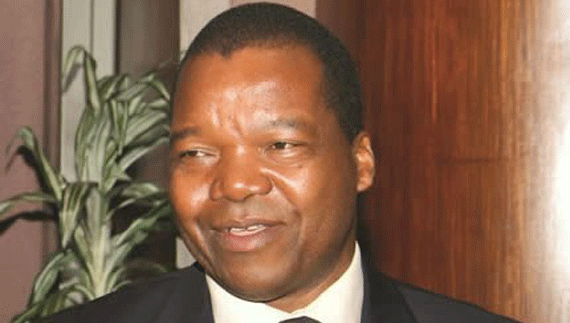
THE Zimbabwe Congress of Trade Unions (ZCTU) has warned that the government’s proposed move to freeze salaries could trigger labour unrest in the country.
MTHANDAZO NYONI OWN CORRESPONDENT
The Reserve Bank of Zimbabwe (RBZ) last week said the country’s economy had no room for salary increments, adding that such moves would further destroy the economy.
RBZ boss John Mangudya said the central bank had considered that the national economy was not able to sustain any further increases in wages and salaries, and that the welfare of consumers and employees should be addressed through the reduction of prices and deflation to enhance the purchasing power of the current wages and salaries.
He warned that bonuses should not be viewed as an entitlement, but instead as a performance-related compensation and urged employers, including the government, to put in place clear principles adding that where necessary, notices for the payment or non-payment of such compensation should be effectively and timely communicated to the affected beneficiaries.
However, in a memorandum, ZCTU acting secretary-general Gideon Shoko said the government should be ready for demonstrations if it implemented the salary freeze.

“The Finance minister (Patrick Chinamasa), industry and RBZ governor Mangudya came out in both print and electronic media urging employers not to increase salaries because they believe that the employers cannot afford to do so,” reads part of the memorandum.
“The statements that they made are taken as an attack on employees’ fundamental rights. The dates will be communicated to you as soon as ground work is completed.
- Chamisa under fire over US$120K donation
- Mavhunga puts DeMbare into Chibuku quarterfinals
- Pension funds bet on Cabora Bassa oilfields
- Councils defy govt fire tender directive
Keep Reading
“The leadership of the ZCTU, having noted the bad and unethical stance set by the above-mentioned authorities, would like to inform all affiliates that they should ready themselves for demonstrations concerning these utterances by the authorities mentioned above.”
Shoko said government officials were making reckless statements without looking at the situation holistically and as a result, employers had found a loophole and a finger to hide behind.
He said employers were not paying salaries and were reluctant to come to the negotiating table to discuss conditions of service of employees.
Mangudya said it was imperative to note that Zimbabwe’s public wage bill as a percentage of revenue was higher than all the regional countries despite the country having the lowest population with the exception of Botswana.
“We need to move away from the psychology or concept of money illusion, which states that people think in terms of the amount of money they have, rather than in terms of its value,” he said.
“We now need to think in terms of value. This is why even those not working would have their welfare increased as they would be able to buy more from a US dollar.”
Zimbabwe businesses have been struggling for viability in a repressed economic environment, forcing most to either downsize or close down.
Numerous employers, including the government, have suggested the need to lay off workers to align business’ outturn and profitability with staff resources.
However, some economic analysts warned that the exercise could be counterproductive, especially for the government, since retrenchment costs could prove more expensive than employment costs.










